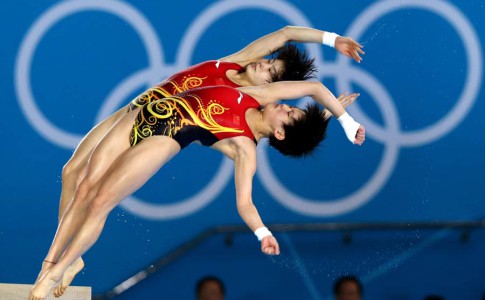Our recent article – “Winning is everything. Really?” – mentioned a study performed by researchers from George Washington University. They dealt with the relationship of children with the sport and tried to discover what it is that makes sport entertaining. They found out that, in a secondary school (but often much earlier), the element of fun fades away from sport and the fight for results begins. But in fact this is something children do not really like at all.
According to the study, there are up to 81 factors that make children perceive sport as entertainment. You might be surprised, or maybe not, but the actual “winning” is not at the forefront of these factors. On the contrary, it is somewhere at the bottom of the entire ranking. Instead, most children appreciate the sport experiences in competition, commitment, and the effort and positive attitude of their trainers.
Above medals and trophies, fairness, sporting spirit and teamwork rituals rank highly for children. The sporting world of children is therefore not so one-dimensional as plenty of adults would say. Adults are often obsessed with the desire for victory, however, it is not so important for children.
A change in coaches’ way of thinking
Here is David Carter’s opinion: “Sport must be fun for children. Pushing for results only deprives you of the most important part that sport brings. Regular sport, which has a fun character, forms personality, shapes movement habits, develops ties to the specific sport, which can last a lifetime. And then the player may succeed. In contrast, stress and strain that arises from the pressure of the results, leads primarily to the reluctance of children to continue. For that reason, it is little wonder children decide to quit their sport activity,” he says.
In golf it is especially true because parents often put on children plenty of unrealistic expectations. The young players spend their training by drilling, which literally sucks the energy out of them.
The other approach, however, also requires a change in coaches’ thinking, since a large portion of creativity in training is required. “No one wants to remove the element of competition from golf. Wins are great,” laughs David Carter, “but they should never take precedence over entertainment. Certainly not in younger children.”
David Carter is not an opponent of competition
The English coach and mentor from Albatross firmly denies that he is an opponent of competition. “For many years I fought for titles on the European Tour. That’s why I know how delightful a feeling it is to win. However, I also understand that not every child decides to pursue the sport professionally. Sport is yet an important part of everyone’s life. Children mustn’t be discouraged from it. And this is doubly true in golf. Golf can be played recreationally and at a good level from a young to old age,” he says.
He adds that children who excel in their age category can move to more challenging tournaments and pit their strength against greater competition. Those who are heading further need to adapt the environment to their needs. Not vice versa. For others, sport should remain primarily a form of entertainment, which benefits lie somewhere other than on the podium.
According to David Carter there are at least the following three advantages in golf:
- Endurance. Every sport, and golf is no exception, teaches tenacity and endurance. Children learn to resist the difficulties and cope with the various pitfalls and obstacles. The reward for overcoming them is sweeter and longer lasting than a cup on a shelf.
- Responsibility. Everything children perform on the course has some result -sometimes good, sometimes not. But it is always they who are responsible; they cannot simply throw the responsibility on to someone else.
- Honesty. Writing down correct scores, following the rules, and not cheating. These are the main attributes of golf as a sport. Honesty and fairness towards the player himself and rivals is an essential part of golf, and is also a good principle to follow in life in general.










No comments